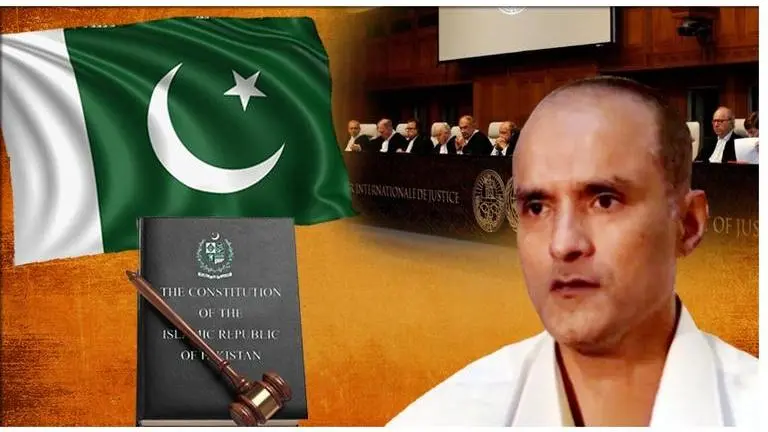Updated 17 July 2019 at 21:57 IST
Kulbhushan Jadhav Verdict: ICJ reads Pakistan its own Constitution, quotes 'right to a fair trial' while ordering it to review Jadhav's conviction
In the Kulbhushan Jadhav verdict siding with India, the International Court of Justice(ICJ) while directing Pakistan to review and reconsider the conviction of death sentence of Jadhav, reminded Pakistan of its own argument where it emphasized the right to free trial stated in Pakistan's Constitution as exhibited in the decision of the Peshawar High Court in 2018
- India News
- 3 min read

In the Kulbhushan Jadhav verdict siding with India, the International Court of Justice(ICJ) while directing Pakistan to review and reconsider the conviction of death sentence of Jadhav, reminded Pakistan of its own argument where it emphasized the right to free trial stated in Pakistan's Constitution as exhibited in the decision of the Peshawar High Court in 2018.
"During the oral proceedings, the Agent of Pakistan declared that the Constitution of Pakistan guarantees, as a fundamental right, the right to a fair trial; that the right to a fair trial is “absolute” and “cannot be taken away”; and that all trials are conducted accordingly and, if not, “the process of judicial review is always available." Counsel for Pakistan assured the Court that the High Courts of Pakistan exercise “effective review jurisdiction”, giving as an example the decision of the Peshawar High Court in 2018, "quoted ICJ in its verdict (Paragraph 145).
ICJ quotes Pakistan's Constitution:
Reminding Pakistan of this principle enshrined in its own Constitution, ICJ directed Pakistan to provide review and reconsideration of the conviction and sentence of Mr Jadhav, saying by not doing so, Pakistan violated the Vienna Convention.
"The Court points out that respect for the principles of a fair trial is of cardinal importance in any review and reconsideration, and that, in the circumstances of the present case, it is essential for the review and reconsideration of the conviction and sentence of Mr Jadhav to be effective. The Court considers that the violation of the rights set forth in Article 36, paragraph 1, of the Vienna Convention, and its implications for the principles of a fair trial, should be fully examined and properly addressed during the review and reconsideration process," said the ICJ in its verdict.
Advertisement
ICJ verdict on Kulbhushan Jadhav case:
Apart from asking Pakistan to review and reconsider its conviction of Kulbhushan Jadhav, ICJ stayedKulbhushan Jadhav's death penalty and granted India consular access to him by a vote of 15:1 in favour of India.
As seen in the verdict, the one dissenting judge is Pakistan ad hoc judge Tassaduq Hussain Jillani. The ICJ also stated the various breaches of the Vienna Convention made by Pakistan, declaring India's application admissible.
What is the Kulbhushan Jadhav case?
Jadhav, 49, a retired navy officer was kidnapped by Pakistani authorities on March 3, 2016, from Iran, where he was carrying on his own business and was then shown to have been arrested in Baluchistan. India was informed about the arrest on March 25. He was sentenced to death alleging espionage on April 2017. Following the order by Pakistan's military court, India approached the ICJ and appealed that arrest of Jadhav and denial of consular access to him is in violation of provisions of the Vienna Convention on Consular Relations, 1963.
Advertisement
Published By : Suchitra Karthikeyan
Published On: 17 July 2019 at 21:39 IST
